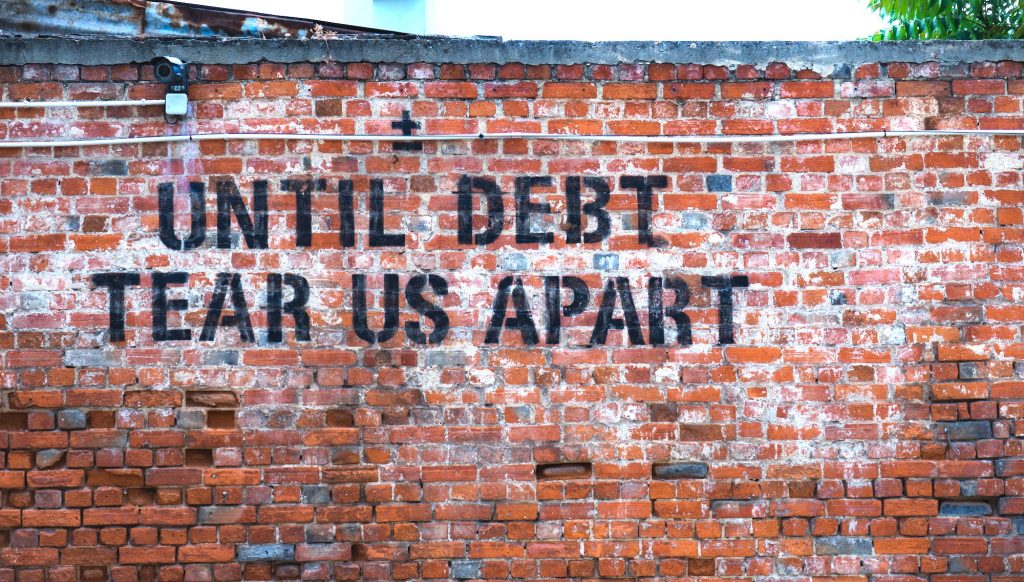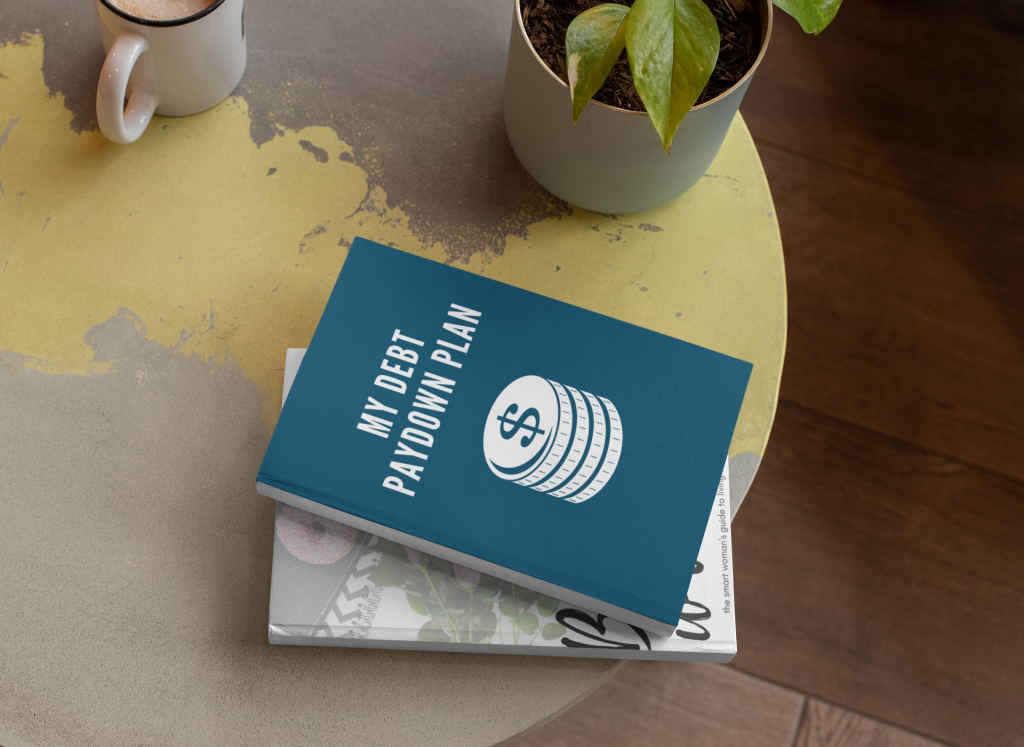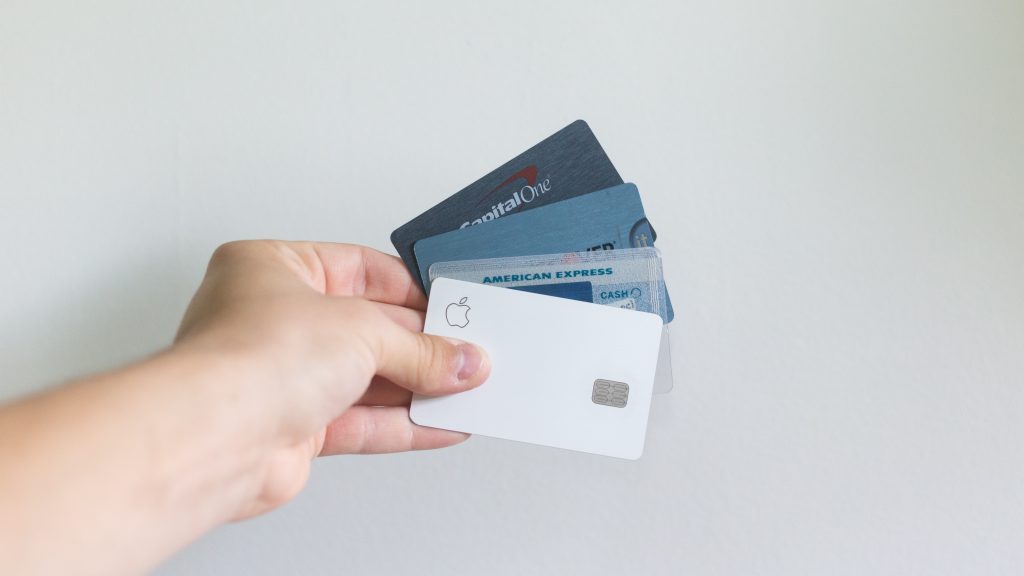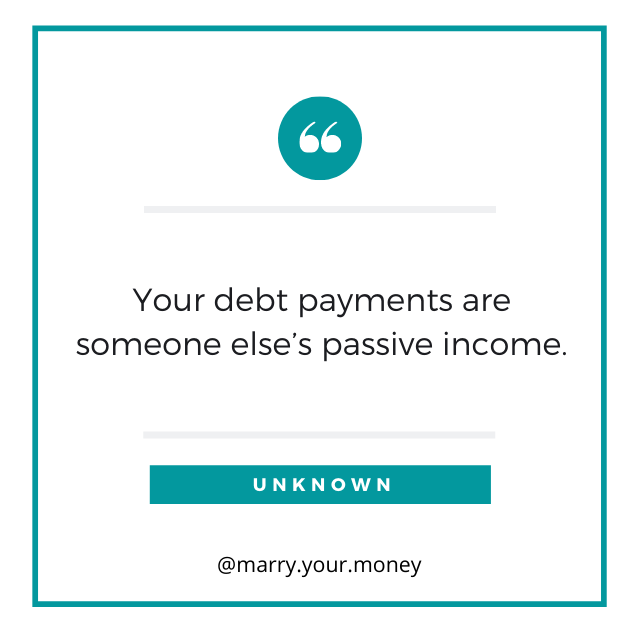(10 minute read)
In our society today, being in debt is accepted as a way of life. You take out student loans, you sign onto a big mortgage, and you swipe your credit card like you’re Bill Gates without a second thought. But just because “everyone is in debt” doesn’t mean it’s the right thing to do. There are at least ten ways I can think of that we too often believe are the reasons we are in debt, will continue to stay in debt, and therefore think we can’t find a way out of debt. Would you believe me if I told you those were all myths? That anyone, anywhere, with just a little motivation and focus, can not only break the cycle with debt, make a plan to get out of debt, but also find their way on a pathway to wealth?! Well, read on for the ten myths keeping you in a bad relationship with debt.
1. If I just make more money, I’ll get rich.
Fact: You can build wealth on any salary. The biggest hurdle to being “rich” is how much you spend, not how much you make.
This is the number one myth that I ALWAYS hear. “If I just make more money Amy, I’ll get rich.” Anyone, at any income, can save money, get out of debt, and build wealth. The most significant barrier to building wealth (and getting out of debt) is your mindset and habits when it comes to spending money, making money, and saving money. If you work on breaking the cycle of spending more than you make and make it a goal to save something every month, then you are well on your way to getting out of debt and building a pathway to wealth.
2. Someone else will take care of me.
Fact: The only person you should rely on for your financial freedom and success is yourself.
I hear this one all the time, and it is a BIG myth. Whether there is a breakup, a death, or your partner gets into secret debt (WAY more common than is talked about!), you can only be responsible for you. You can be (and should be!) the only responsible party for yourself.

I think you must have a wholistic money plan if you are in a partnership, but regardless of your relationship status, you need to build your financial plan. Also, if you create a plan for yourself, then you will have solid strategies for building a financial plan with your partner.
3. Everyone has debt so it’s okay if I have debt.
Fact: Just because everyone is doing it doesn’t make it okay.
This is a common thought, but alas, it is a myth. There may be a lot of people in debt, but trust me, it is not normal! We normalize way too many things in this country that are not okay, and being in debt is just another item on the list. There used to be a time when you saved up before you bought something, and although that time may have also existed while the cost of things felt more obtainable, it was also an excellent lesson to learn. In the days of delivery groceries, movies that stream straight to your TV, and potential partners that you can “swipe right” on from your couch, there is something to be said about the value of delayed gratification and saving for something. Work to normalize the idea that you should live a life without debt.
4. The debt I have is “good debt.”
Fact: No debt is “good” debt.
I hear this all the time. “I have good debt.” As someone who has student loan debt, I heard this all the time as I contemplated taking out student loans. It was also what I heard when taking out a mortgage – “Oh, it’s okay because it is ‘good’ debt.”
Debt is an agreement to stay locked in a payment to someone else for a length of time. You may think a student loan to obtain a higher degree will help open doors to a higher income bracket or a different job, but even if it enables you to make more money, you will spend most of that extra money you make paying back the debt you took out to earn it. A mortgage may allow you to “own” a home, but often what I see is people max out their budget on the purchase and don’t realize how much money it takes to upkeep a house – so their mortgage becomes another thing weighing them down. Ultimately not all debt is created equal, but no debt is “good” debt.
5. Retirement is so far away, I don’t have to start saving or caring about that now.
Fact: The biggest factor in saving for retirement is how far in advance you start.
This is a big myth because the number one value to saving for retirement is the benefit of time. So this is an excellent opportunity to talk about compounding interest and inflation. If you are unfamiliar with these two concepts, compounding interest means your money earns money annually in the market, and then you reinvest the earnings with your original investment so you “compound” on your savings. Ultimately it grows your investment at a faster rate over time. However, you need “time” to make this strategy truly valuable. The closer to retirement age you are, the more of your own money you have to invest to achieve the same results that someone 20 or even 40 years away from retirement might have to. And that’s because they have more “time” to earn interest and then reinvest that interest keeping their initial investment low.
Inflation is what the cost of the dollar you earn today is going to be worth when you retire. The average annual inflation is 2%, meaning that your dollar is worthless in the future because the cost of goods will increase due to inflation every year. So the longer you wait to save and invest that money for your retirement, the more expensive things will become, and the less valuable the money you earned will be. However, if you know that the general average return on your investments in the stock market is 7% and inflation is 2% annually, then you beat the rate by net 5% by investing your money now to use in the future.
What I am saying is start saving and invest now, right now, for your retirement. Time is on your side!
6. I don’t have time to budget or build a plan to get out of debt.
Fact: If you have time to binge-watch Netflix, walk your dog, or scroll through Instagram, you have time to build a budget or a plan to get out of debt.
I can’t tell you the number of times I have heard “I don’t have time” or “I don’t need a budget to get out of debt or reach my savings goals.” I think the reason people phrase it this way is that they are afraid of what sitting down to write a budget or sketch out a debt-free plan will tell them. Maybe it will take twice as long as they thought to pay off their debt. Perhaps they will see that they won’t be able to put a down payment on a house for five years instead of the two they were hoping for. But the problem with not sitting down and building that budget or writing that plan is that you are wasting precious time by not having one. Not only are you wasting time, but you are wasting your money by not telling it where to go today!

Not a single person that I know has gotten out of debt or met their savings goals WITHOUT A BUDGET AND A PLAN. It would be near impossible to simply keep track of all your money going in and out and being able to know where to pull back and when to push forward simply in your head. There’s a reason that nearly any goal you want to achieve comes with a written plan from fitness programs and nutrition plans, to instructions on how to put together a piece of IKEA furniture, there is a plan to get you to the desired finish line.
So build the budget, write the plan, MAKE THE TIME because you are throwing away your time and money if you don’t.
7. Other people are just “money smart”. I am not.
Fact: Anyone can tell their money where to go.
This myth just needs to go somewhere and die asap. I get so disheartened when I hear from people “I’m just not a money person” or “gosh it just seems to me that you need to have some kind of ‘money smarts’ to make your money work for you” and I’m here to dispel this myth once and for all. You don’t have to be a “special” kind of person with a “special” kind of brain to take control of your finances. Everyone can and should be the steward of their money and their life. It’s okay to be afraid to get started, and it’s okay if it feels confusing at first. But everyone can figure out how much money they have coming in, how much money they have going out, and how much debt they have.
Once you know those three numbers, you are in the driver seat to determine how much you can afford to send to your debt every month, areas where you could cut back on your expenses, and identify opportunities to make more money. It’s that simple!
8. I’m making all my payments so eventually this debt will go away.
Fact: Your financial freedom can’t wait for “eventually.” Making a proactive, aggressive plan to pay down and off your debt is the fastest way to your pathway to wealth.
Although this is less of a myth because it is technically accurate, it is a myth because it implies that just because you have a debt repayment plan that it is a “good” plan. Let’s unpack this. First – having any debt payoff plan is a great money move, so don’t misinterpret what I am saying here. However, just like not all debt is created equal, not all debt repayment plans are created equal. If you only pay the minimum of your debt, you could wind up paying off that debt for 30+ years and, of course, also sinking all kinds of money in the interest payments of that debt. If you genuinely want to be financially free and out of debt, you have to take a proactive approach, which means at least paying something more than the minimum towards your debt.
If you are just starting your debt-free journey, take a look at all your debt payments, find the one with the highest interest rate, and put as much money as you can towards that payment a month. Then when you pay that one off, move that payment to the next highest interest rate payment, and so on. This is called the “debt avalanche” plan. Keep paying the minimums on all the debt you have while you tackle the largest interest rate payment, and soon you will be debt-free! Now, doesn’t that plan sound better than paying off your debt for 30 years?!
9. I’ll just put it on my card. I have 30 days to pay it off anyways – it’s free money!
Fact: The average American carries a balance of $8398 in credit card debt.
So unless you are the most diligent person on earth and pay off your credit card every month in full, then you are buying into this myth that having a credit card to make purchases you don’t have the money for is okay. It’s not! Now I’ve said this before; I’m not anti-credit card. I think credit cards can be a great tool, and I love the points a lot of them give. But if you are in debt, not quite sure of how you got there, and find yourself putting things on your card, you don’t have the cash for, then you aren’t ready to incorporate cards into your financial plan.

The first step you should take is building a budget, identify how much you can afford to spend each month in expenses, and then attempt that via cash or debit card for at least a couple of months. Once you identify that you can build a plan and stick to it, then you can try incorporating a credit card back into your plan as the means to pay for things as long as 1) you only charge the amount you budgeted for and 2) you pay it off every month.
You can’t afford to go into debt WHILE you are paying off debt. Write that down on a post-it note and stick it somewhere, so you don’t forget that.
10. Debt is just a way of life.
Fact: Debt is not a way of life. It’s a hurdle keeping you from living life.
Coming in hot at number 10 is the biggest myth of them all. Debt is not a way of life. We’ve been sold down the river that it’s normal and okay to be in debt. And we need to stop accepting that as a way of life. A great quote I heard once was that “your debt payments are someone else’s passive income.” Oh. My. God. Mic drop. It is so true. If you are in debt, you are making someone else rich. And don’t we already have enough problems with the rich getting richer in this country?!

Stop being in debt and start making YOURSELF rich by changing your thought process about debt being normal and start working today to build yourself a pathway out.
I hope this helped you identify and dispel some of the top myths keeping you in a bad relationship with debt. Remember that you won’t just get rich if you make more money, no one but you should be taking financial care of yourself, not everyone has debt, no debt is “good” debt, start saving for retirement now, you do have time to build a budget and a plan to get out of debt, everyone is money smart, don’t just make the minimum payments on your debt, don’t use a credit card as “free” money, and that debt is not a way of life. If you start to change your mindset about debt, you can begin to change your life.
Shoot me an email if you want to talk money or to start making a plan to get out of debt. And as always, I hope you stay healthy and happy!
Xoxo,
Amy





